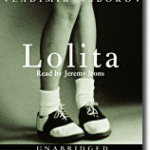f you have ever submitted a manuscript to a publisher and received a rejection letter, you have some rather prestigious company. Most all of the greatest writers of our times received boxes of rejections before the big sale. But if you ever needed proof that the critical eye is many times lacking, look no further than a recent experiment by the Sunday Times Of London.
The newspaper sent the first chapters of novels, assumed to be the writing of aspiring novelists, to 20 publishers and agents. All but one of the 21 replies were rejections. The manuscripts, get this, were actually Booker Prize winners in the 1970s!
The books were “Holiday,” by Stanley Middleton; and “In a Free State,” by V. S. Naipaul, one of Britain’s greatest living writers who won the Nobel Prize for Literature in 2001. Middleton wasn’t the least bit surprised saying, “People don’t seem to know what a good novel is nowadays…To see something is well written and appetizingly written takes a lot of talent, and there is not a great deal of that around. With all the other forms of entertainment today, there are very few people around who would understand what a good paragraph is.”
There are a lot of theories about the snub, but most seem to agree that publishing is relying more than ever on celebrity authors, at the expense of great writing. The whole story from the Sunday Times is here. Read it and weep (or cheer).
My favorite rejection of all-time is the note from a major publisher to Vladimir Nabokov as they passed on “Lolita”…….
‘… overwhelmingly nauseating, even to an enlightened Freudian … the whole thing is an unsure cross between hideous reality and improbable fantasy. It often becomes a wild neurotic daydream … I recommend that it be buried under a stone for a thousand years.’
I think the moral of this post is: if you believe in yourself, don’t take rejection too seriously. Keep writing.

